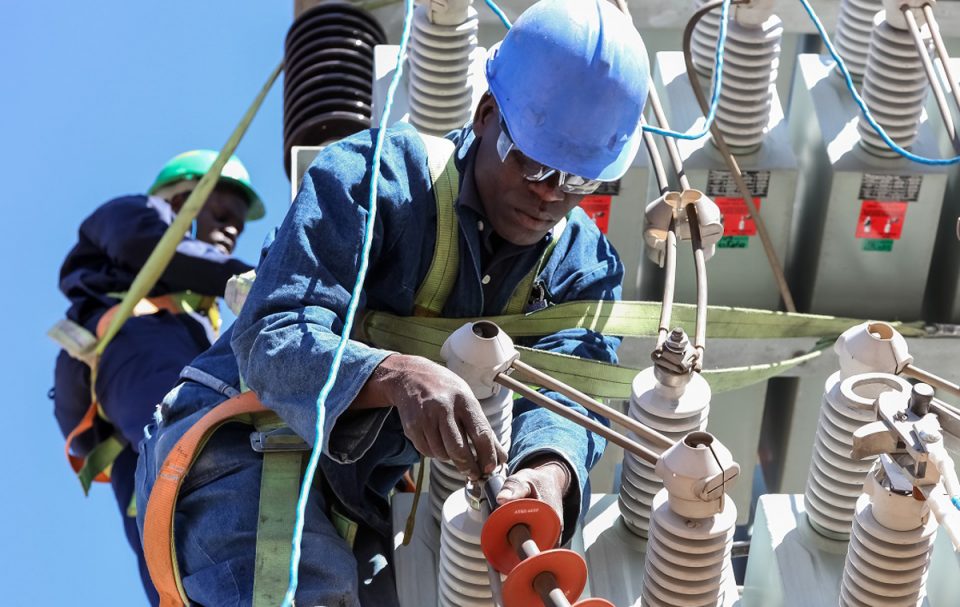- Begins training of engineers, forecasts 11,000 jobs
The federal government yesterday said its electricity deal with Siemens was on course, stating that the first phase of the programme under the Presidential Power Initiative (PPI) would increase power supply to about 40 million Nigerians.
In addition, the contract which would see the eventual ramp up of the country’s generation capacity to 25,000 megawatts, the government stated, would create at least 11,000 direct and indirect jobs.
Speaking at the commencement of the PPI training on network development studies, by FGN Power Company, the firm overseeing the Siemens power project, in Abuja, the Minister of Finance, Budget and National Planning, Dr. Zainab Ahmed, said the unveiling of the training session was a milestone under the initiative.
Ahmed assured that the collaborative effort with the implementing partner, Siemens, on the PPI was on track to bring positive change to the power sector.
The training aspect of the PPI, she said, was to empower engineers with tools and training on network modelling and system development studies.
According to her, the FGN had been driving the process by coordinating key stakeholders’ input and working with the ministry of finance to secure financing and to enter into efficient commercial and contractual arrangements to deliver the PPI.
The flag-off of the training, she noted, was intended to deliver capacity development for engineers in network development, using proprietary simulation software by Siemens.
“The first phase of the PPI will provide over 40 million people with more reliable electricity supply, create 11,000 direct and indirect jobs for Nigerians from power system engineers to electricians and contractors.
“This will in turn improve the standard of living while providing homes and businesses with constant, reliable and affordable electricity supply,” the minister said.
While lauding President Muhammadu Buhari, “for his tireless effort in supporting the efforts of sector improvements, in particular the PPI,” Ahmed explained that the first phase would witness the immediate rise in generation by 2,000 megawatts.
The minister is the chairperson of the board of FGN Power Co, while members are the ministers of power, works and housing as well as the minister of justice, the Director General of the Bureau of Public Enterprises (BPE) and president of the Nigerian Society of Engineers (NSE).
In his remarks, the Minister of Power, Abubakar Aliyu, who was represented by the Minister of State, Power, Mr. Goddy Jedy-Agba, reiterated that in 18 months, the Siemens project would add 2,000 megawatts to the national grid, raising it to about 7,000 megawatts.
“The objective of the PPI is to increase the end-to-end grid operational capacity of the power system in Nigeria to 25 gigawatts, but the focus in the next 18 months is to deliver the first additional 2,000 megawatts.
“This will create a rapid transformation in the on-grid electricity value chain, spur economic growth, create jobs and opportunities for Nigerian youth and enterprises,” he noted.
He pointed out that the government was prepared to solve the problems of epileptic power supply in Nigeria once and for all, stressing that it is the reason the federal government launched the programme.
According to him, the initiative would help to achieve commercial autonomy by facilitating investments in critical infrastructure for power delivery and service to Nigerians.
“This project is expected to modernise, rehabilitate and expand the national grid by investing in the electricity value chain (generation, transmission, and distribution systems) of the power sector.
“Our implementing partner, Siemens will assist with world-class experience in power system reforms like they have done recently in Egypt,” he noted.
Also speaking, the Managing Director of FGN Power, Kenny Anuwe, said the training was the first Power System Simulation Software (PSS) session under the Power Technology International (PTI) from Germany.
He noted that the training would cut across the power sector value chain comprising the generation, transmission and distribution to be handled by the National Power Training Institute of Nigeria (NAPTIN).
According to him, the training will happen over the next four years on different levels to ramp up the competency of those that will be involved in handling the project.
Anuwe assured that the project will resolve the existing bottlenecks in transmission and distribution networks, which will increase electricity access across Nigeria.
“It is important to stress that the benefits of constant and reliable electricity will boost economic activities; improve the lives of small, medium and micro enterprises across and deliver the much-needed power supply across the country.
“I want to assure you that FGN Power Company will do its best to deliver on this project to ensure greater success and sustainability,” he stated.
Commenting, the Project Director, Siemens Energy, Nigeria, Sean Manley, said Siemens had brought in trainers from Germany, explaining that the company would not relent until the different phases were executed.




